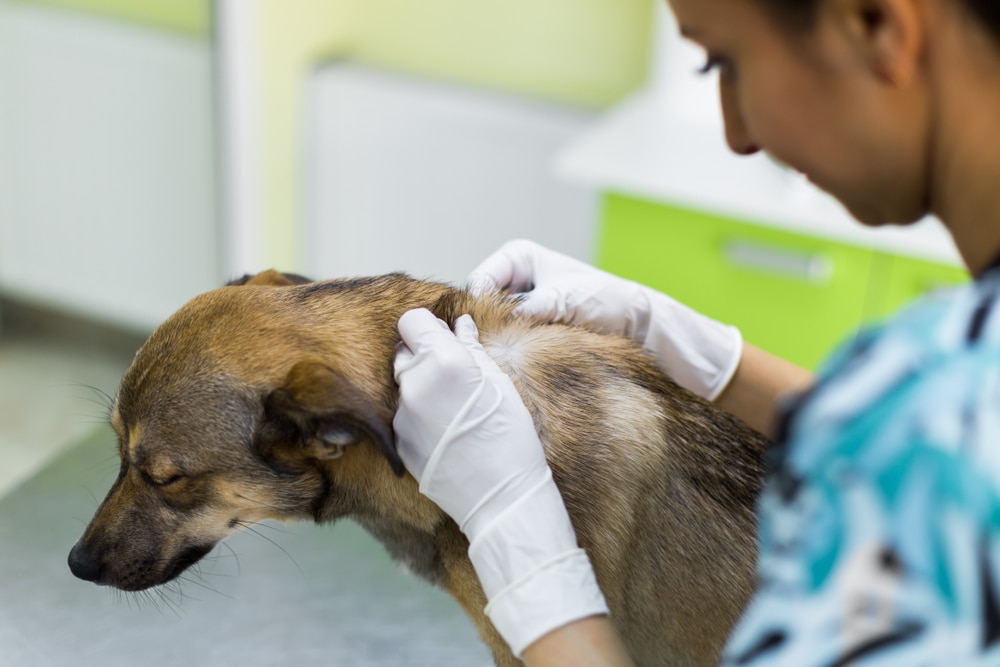
-
Find the right food for your petTake this quiz to see which food may be the best for your furry friend.Find the right food for your petTake this quiz to see which food may be the best for your furry friend.Featured products
 Adult Chicken & Barley Recipe Dog Food
Adult Chicken & Barley Recipe Dog FoodSupports lean muscle and beautiful coat for adult dogs
Shop Now Hill's Science Diet Adult Chicken & Beef Entrée Dog Food
Hill's Science Diet Adult Chicken & Beef Entrée Dog FoodChicken & Beef Entrée in a delicious loaf with complete & balanced nutrition to help keep adult dogs active and healthy
Shop Now Adult Large Breed Chicken & Barley Recipe Dog Food
Adult Large Breed Chicken & Barley Recipe Dog FoodSupports healthy joints, lean muscle, and beautiful coat for large breed dogs
Shop NowFeatured products Adult 7+ Indoor Chicken Recipe Cat Food
Adult 7+ Indoor Chicken Recipe Cat FoodSupports energy level and beautiful fur in mature indoor cats
Shop Now Senior Vitality Adult 7+ Tuna & Vegetables Stew
Senior Vitality Adult 7+ Tuna & Vegetables StewImproves Everyday Ability to Get Up & Go
Shop Now Adult Turkey & Liver Entrée Cat Food
Adult Turkey & Liver Entrée Cat FoodPrecisely balanced nutrition with the delicious taste of minced turkey & liver to help fuel the energy needs of cats during the prime of their life
Shop Now -
Dog
- Dog Tips & Articles
-
Health Category
- Weight
- Food & Environmental Sensitivities
- Urinary
- Digestive
- Joint
- Kidney
-
Life Stage
- Puppy Nutrition
- Adult Nutrition
- Senior Nutrition
Cat- Cat Tips & Articles
-
Health Category
- Weight
- Skin & Food Sensitivities
- Urinary
- Digestive
- Kidney
-
Life Stage
- Kitten Nutrition
- Adult Nutrition
Featured articles How to Properly Mix Wet & Dry Pet Foods
How to Properly Mix Wet & Dry Pet FoodsAn Orange cat eating from a bowl filled with mixed food
Read More What Is Littermate Syndrome? Pet Adoption Guide
What Is Littermate Syndrome? Pet Adoption GuideLearn more about littermate syndrome in dogs and cats and how to successfully navigate adoption and early socialization processes.
Read More The Science Behind Our Love for Pets
The Science Behind Our Love for PetsLearn the scientific reasons why we have such strong connections with our pets, and what science says about the love between humans and our furry friends.
Read More -


Skin infections in dogs are a common reason pet parents take their dogs to the veterinarian — because who can sleep when their dog is scratching all night? You want to get to the bottom of what's causing them discomfort fast, and we're here to help.
Whether your dog is dealing with a mild irritation or severe condition requiring medical treatment, staying informed about skin conditions in dogs can help you recognize the first sign of a problem so you can get your pup the attention they need. Understanding what causes skin infections in dogs, as well as common signs to look out for and actionable ways to reduce your dog's risk of developing a skin infection, is a great place to start.
What Causes Skin Infections in Dogs?
Skin infections are primarily a result of yeast and bacteria overgrowth on the skin's surface, but both of these are often caused by an underlying condition.
Normal, healthy dog skin houses several species of microorganisms on its outermost surface. These organisms include yeast (Malassezia pachydermatis) and bacteria (Staphylococcus), and they have a symbiotic relationship with their host — your dog. They support healthy skin function, help regulate immune response and prevent potentially harmful microorganisms from colonizing on the skin. However, anything that irritates, traumatizes or otherwise harms the surface of your dog's skin can result in yeast and bacteria overgrowth, which can cause a secondary skin infection.

Skin Allergies
Affecting up to 15% of the dog population, atopic dermatitis is one of the most common causes of skin infections in dogs. Skin allergies include flea allergies, environmental allergies and food allergies. Allergic dogs often wear down their skin due to excessive scratching, leaving it vulnerable to infection. In addition, dogs with allergies typically have a disrupted skin barrier, which allows yeast and bacteria to overcolonize the skin and cause problems.
Skin Fold Dermatitis
Dogs who have wrinkles around their face, tail or armpits, such as bulldogs, pugs and boxers, are generally prone to repeat skin infections in these areas. This is because the skin fold creates a moist environment where yeast and bacteria can thrive.
External Parasites
Fleas, ticks and skin mites, like scabies and demodex, chew on and irritate the skin's surface, resulting in secondary skin infections.
Hormonal Imbalances
Endocrine disorders such as diabetes, Cushing's syndrome and thyroid disease can all cause skin changes in dogs that may result in secondary skin infections.
Trauma
Anything that irritates your dog — think a foxtail stuck in the paw — can cause them to lick and chew the skin, which ultimately creates an entry point to bacteria and can result in a secondary infection. This concept also applies to bites, wounds and abrasions.
Autoimmune Disorders
Dogs who are immunocompromised or have an autoimmune skin disease, like pemphigus (often characterized by skin blisters), are at higher risk of skin infections.
Immunosuppressive Drugs
Dogs undergoing treatment with drugs that can suppress the immune system, such as steroids, cyclosporine or chemotherapy, are at increased risk for skin infections.
Poor Nutrition
Malnourished dogs have lowered immunity compared to healthy dogs, which can make them more vulnerable to secondary skin infections.


Tasty Tips
The Signs of Skin Infections in Dogs
Skin infections can be localized to one area of the body, multifocal (appearing in different areas) or generalized (all over the body). The specific signs of a skin infection in dogs depends on the type of infection.
Bacterial
The signs of a bacterial skin infection (i.e., pyoderma) in dogs include:
- Redness/rash
- Hair loss
- Itchiness
- Pimples
- Crusting
- Excessive shedding
- Open wounds oozing with serum or pus
- Nodules
- Blackheads
- Tenderness
Yeast
The signs of a yeast skin infection in dogs include:
- Redness/rash
- Hair loss
- Itchiness
- Excessive dandruff
- Skin odor
- Thickened, hyperpigmented (black) skin

Diagnosis and Treatment of Skin Infections in Dogs
Skin infections are very common in dogs, and vets have many tools at their disposal to identify the problem and provide a solution.
In dogs, skin infections are typically diagnosed with a combination of physical examination and laboratory testing. Your vet will also want to hear what's been happening with your dog at home and whether they have any history of skin disease. After they examine your dog, your vet will typically want to run some or all of the following tests:
- Microscopic examination of a skin scrape
- Bacterial or fungal culture
- Wood's lamp test to help rule out ringworm (confirmed by a fungal culture)
The good news is that, once diagnosed, treating skin infections is fairly straightforward. Your vet will prescribe antibiotics or antifungal therapy. They may recommend oral, injectable and/or topical antimicrobial medications to treat your dog from the inside out. Topical therapies can also include medicated shampoos, lotions, sprays, cream rinses and wipes.
Your vet will likely also perform testing, such as bloodwork or a skin biopsy, to determine the underlying cause of the skin infection, if applicable. Based on their findings, they may recommend flea control, allergen avoidance, hormone therapy or switching to a therapeutic food formulated for skin issues.
Prevention of Skin Infections in Dogs
Fortunately, proper hygiene and regular vet check-ups can often help prevent skin infections in dogs. Here are some quick tips to help reduce your dog's risk of skin infections:
- Clean skin folds regularly.
- Ask your vet about flea and tick prevention.
- Brush your dog regularly.
- Contact your vet at the first sign of any concerns.
- Stay on top of wellness visits to identify and treat any underlying conditions.
- Feed your dog a complete and balanced dog food.
While skin infections are common in dogs, your vet can help you manage and often cure the condition so your dog can get back to feeling their best. Never hesitate to reach out to your vet for help, and continue staying informed and being proactive — it's the best way to show your dog you care!


Dr. Sarah Wooten graduated from UC Davis School of Veterinary Medicine in 2002. A member of the American Society of Veterinary Journalists, Dr. Wooten divides her professional time between small animal practice in Greeley, Colorado, public speaking on associate issues, leadership, and client communication, and writing. She enjoys camping with her family, skiing, SCUBA, and participating in triathlons.
Related products

Supports lean muscle and beautiful coat for adult dogs

Chicken & Beef Entrée in a delicious loaf with complete & balanced nutrition to help keep adult dogs active and healthy

Supports healthy joints, lean muscle, and beautiful coat for large breed dogs

Chicken & Barley Entrée in a delicious loaf with great taste and precisely balanced nutrition to support 5 essential building blocks for lifelong health
Related articles

Discover how the field of dog science is giving us more and more insights into the inner workings of our furry best friends.

Your dog's coat and skin are a big part of your dog's overall health. Ensure you keep your dog's coat healthy, by following these simple tips.

Wondering where can I buy a dog? Consider adoption and explore the pros and cons of adopting a dog from a breeder versus an animal shelter.

Learn how to help keep your dog's immune system in tip-top shape, including nutritional immune system support for dogs and other strategies.

Put your dog on a diet without them knowing
Our low calorie formula helps you control your dog's weight. It's packed with high-quality protein for building lean muscles, and made with purposeful ingredients for a flavorful, nutritious meal. Clinically proven antioxidants, Vitamin C+E, help promote a healthy immune system.
Put your dog on a diet without them knowing
Our low calorie formula helps you control your dog's weight. It's packed with high-quality protein for building lean muscles, and made with purposeful ingredients for a flavorful, nutritious meal. Clinically proven antioxidants, Vitamin C+E, help promote a healthy immune system.

